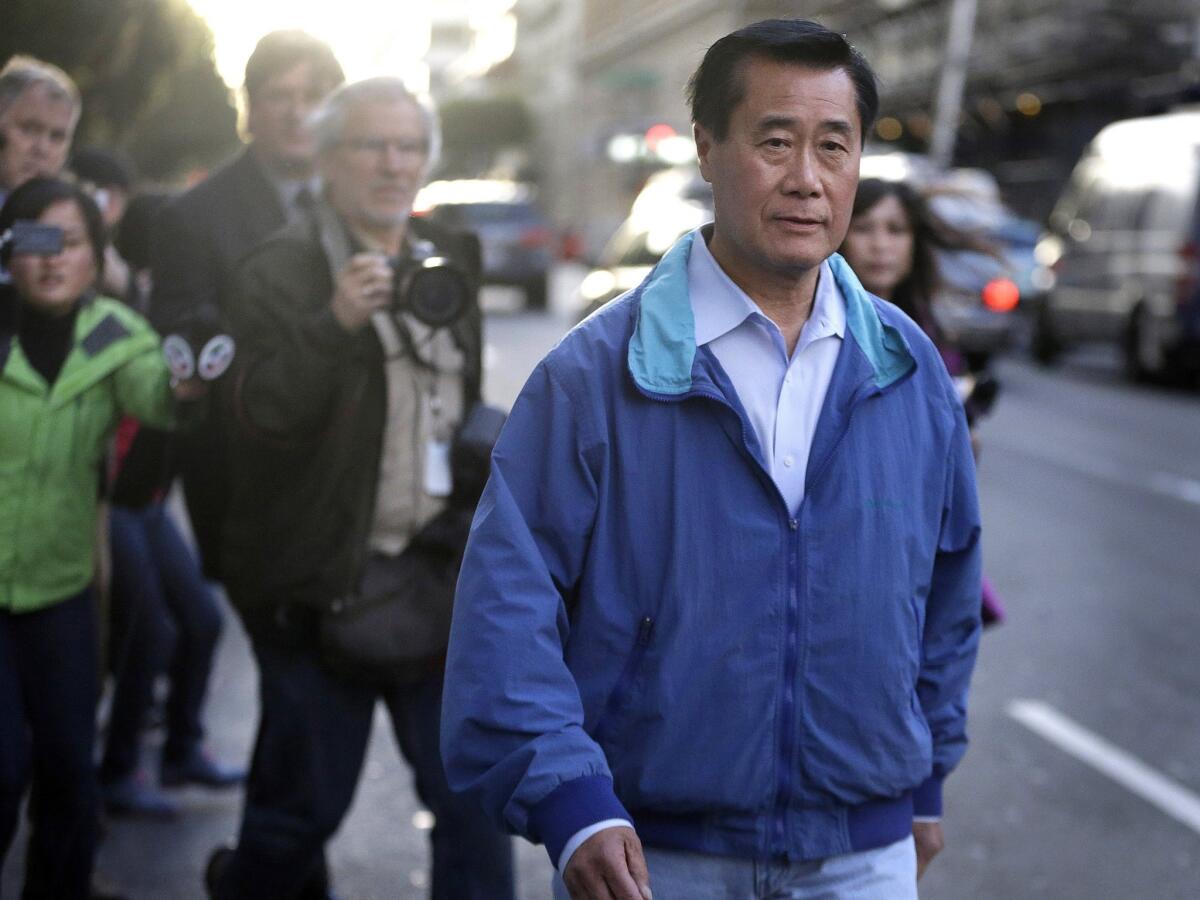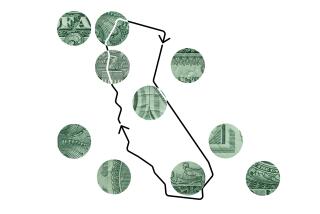Editorial: Fundraising blackout should apply to Senate and Assembly

Last year, the California Senate imposed a temporary blackout on fundraising by its members after the indicments of Democrats
Next week, a 30-day fundraising “blackout” for state senators will kick in, during which they may not receive donations from lobbyists, nor ask for them. They may not so much as send out a measly invitation for a fundraiser. The ban ends the day the state budget is passed and will be followed by another 30-day blackout during the last month of the legislative session, in August.
This isn’t a punishment inflicted on the Senate from above; it was self-imposed last year after the corruption indictments of Sens. Leland Yee and Ronald S. Calderon and the fraud conviction of Sen. Roderick Wright. All are now former senators, but they did no favors for the reputation of the Legislature before they left, or were escorted out.
The rule change was the least the Senate could do to address concerns about transactional politics in the Capitol — the very least. In fact, it was a watered-down version of an already not-that-restrictive bill that would have banned fundraising by all legislators for 100 days before the end of each session, and seven days after. That failed bill was not very popular with members of the Legislature; nor were the handful of other legislative proposals that emerged in the wake of the scandals that would have added regulations or limits on campaign fundraising.
The blackout was never intended to stop the flow of donations altogether, only to end the particularly unseemly tradition of legislators running back and forth — sometimes literally — between a vote on a bill and a fundraiser attended by those who want to influence that legislation.
And just a year after it first took effect, senators are already chafing at the rule. We understand. It takes big money to win an election, and the blackout coincides with one of the most profitable fundraising times of the year. It’s all the more galling that the Assembly has no such constraints.
But rather than dropping the blackout (it needs approval for every two-year cycle), the senators ought to put pressure on their Assembly colleagues to adopt a similar rule. If he hasn’t done so already, Senate President Pro-Tem Kevin de Leon (D-Los Angeles) should appeal to Assembly Speaker Toni Atkins (D-San Diego) to pass a similar rule.
Legislators will argue that they shouldn’t have to curtail their fundraising because, after all, their opponents won’t be bound by the same rule if they’re not in the Legislature. But c’mon, incumbents already have a huge advantage over challengers. A temporary timeout is unlikely to level the playing field, or tilt it in favor of a non-incumbent.
The truth is, a fundraising blackout will have only a minuscule effect on the influence of money in state politics, even if both houses participate. Lobbyists and special interests will still be able to donate to politicians during the other 10 months of the year. The fundraising blackout is a tiny step, but it’s a step, and the Assembly ought to match it. Then both houses should find more that can be done to improve their images.
Follow the Opinion section on Twitter @latimesopinion and Facebook
More to Read
A cure for the common opinion
Get thought-provoking perspectives with our weekly newsletter.
You may occasionally receive promotional content from the Los Angeles Times.






